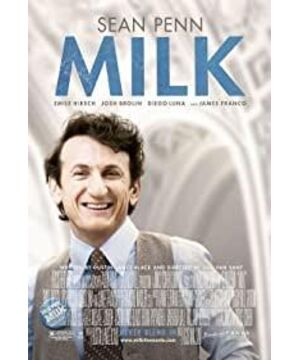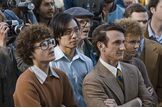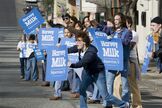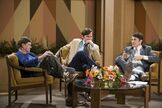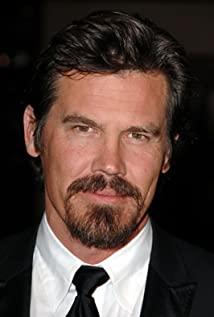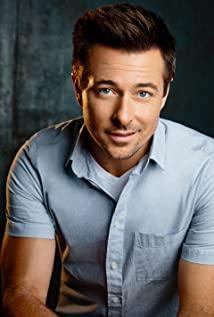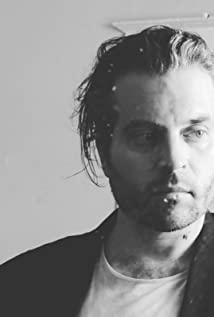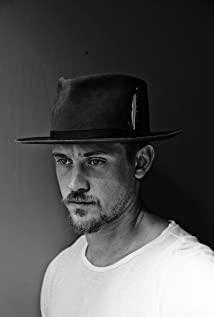San Francisco has always been a haven of freedom in postwar America. In the late 1950s, the Beats sang liberating poetry; in the late 1960s, hippies pursued psychedelic utopias. Although the Stonewall Riots in New York in 1969 launched a gay rights movement, the United States in the 1970s still had huge discrimination against gays, and even treated gays as a mental illness. In sunny San Francisco, however, especially on "Castro Street," gays can happily walk, dance, or hug—outside the closet in the sun.
In the early 1970s, Harvey Milk, a gay man in his forties, also moved from New York to Castro Street in San Francisco. With a deep sense of justice, he quickly became a local community leader, known as the "Mayor of Castro Street." But he gradually felt that only by having "our people" in the political system could help gays and other disadvantaged groups. So he was openly gay in the city representative election, but when he said, "I'm not a candidate, I'm part of the gay movement; this movement is the candidate." After
losing three times, Mick was finally elected in 1977 San Francisco City Councilman. He became the first political figure in American history to be elected as an openly gay candidate.
Meek believes that the main dilemma of gays in society is that they choose to hide, so he always speaks out that gays should come out and live an honest life. During his campaign, he was regularly threatened with assassination, but he was ready to be a martyr: "If a bullet will penetrate my head, let that bullet destroy every cabinet door," he said.
As a result, two bullets really went through his head mercilessly. It was November 27, 1978, and he was shot and killed by anti-gay ex-council Dan White at City Council with Mayor George Moscone.
Mick became a tragic symbol of gay rights history and was named one of Time Magazine's 100 Heroes of the Twentieth Century.
This movie-like true-life story was recently made into the Hollywood movie Milk. The director is Gus Van Sant, an important director who has shuttled between the American independent and mainstream film industry, and Mick is played by Sean Penn. The film, along with Sean Penn, are big hits at this year's Academy Awards. Gus Fansan made a name for himself with a gay film My Own Private Idaho; in the past few years, his films Paronoid Park, The Last Days, Elephant are all low-key and cold independent film styles, and the protagonists are almost always taciturn. sociopath. However, Milk's shooting method is more mainstream (such as his previous "Good Will Hunter"), and because of the main character Mick's personality - warm, humorous, enthusiastic, the whole film also presents such an atmosphere.
Life is like a drama, drama is like life. Mick's wonderful life became a movie, but this movie about history mirrors the reality of the moment.
Milk's US premiere date is November 2008 to commemorate the 30th anniversary of Mick's passing. But in the same month, when Obama was elected president of the United States with the slogan of "Hope", California voters passed "Proposition 8" in a referendum to ban the legalization of gay marriage, causing a major setback to the gay rights movement. Ironically, Mick's most important campaign achievement that year was also a California referendum on gay rights: Proposition 6, which would ban gays from teaching in public schools. That time, comrade won.
In fact, the three decades since Mick's death have been the height of America's "culture war," a political divide over cultural issues—gay marriage, abortion, religion. In particular, President Bush Jr. has been in power for eight years, and through continuous proposals to amend the Constitution expressly prohibiting gay marriage, in order to mobilize the Christian right and consolidate its political power. Therefore, many supporters of gay rights think that Obama's election seems to represent a progressive era, but when California and several other states simultaneously vote to ban gay marriage, is the Obama era really more "hopeful"? ?
But maybe that's what Milk is about at this point. It is in such a still conservative political era, and at such a historical moment when the gay rights movement has suffered setbacks, that this tragic film about a martyrdom for justice thirty years ago gives us a ray of hope.
After all, the slogan "hope" didn't start to shine until Obama; thirty years ago, Mick's most famous slogan and symbol was "hope." One of his most famous quotes is: "You have to give people hope. Hope for a better world, hope for a better tomorrow...Without hope, not only gays, blacks, Asians, the elderly, the disabled, and us, give up. I know we can’t live on hope, but without hope, life has no meaning. And you, you, you have to give them hope.”
In this war on hope, Harvey Meek Always hold the torch ahead for us.
(China Times 2009/2/24)
View more about Milk reviews


